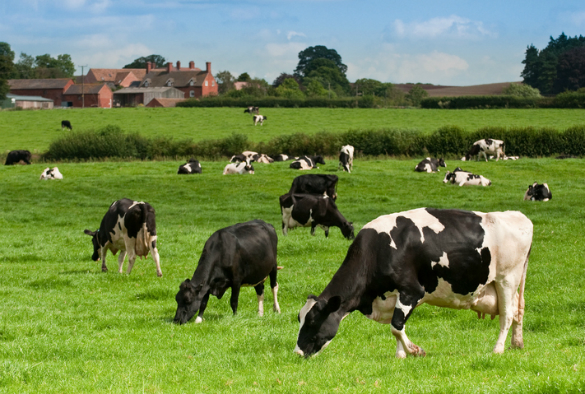
An international research study involving researchers at the University of Liverpool has estimated that drug-resistant parasitic worms cost the European livestock industry more than €38 million per year in production losses and veterinary costs.
Parasites can cause major welfare and productivity problems in cattle, sheep and goats worldwide, affecting growth, fertility and milk production. Worryingly, drug resistance is increasing against the veterinary medicines widely used to treat and prevent infection. This means that current farming methods may not be sustainable in the longer term.
Now a major new study has estimated that parasitic worms cost the European livestock industry more than €1.8 billion per year, with drug-resistance costing at least €38 million per year in production losses and treatment costs. The study can support the identification of livestock sectors and regions where the largest losses occur and inform control programmes and research policies at national and European level.
Agricultural economic data was combined with the latest data on the levels of disease and drug-resistance in 18 European countries. Data were not available for all European countries. This means that the costs are likely to be higher than the conservative estimates reported in the study.
Parasitic worms were estimated to cost the UK livestock industry around £270 million per year (beef cattle: £149 million, dairy cattle: £78 million and sheep: £43 million). Drug-resistant parasitic worms cost an estimate £7.5 million per year.
University of Liverpool researcher Dr Hannah Rose Vineer commented: “Our data can support decision making in research and policy to mitigate the negative impacts of parasitic worm infections and drug resistance in Europe, and provide a baseline against which to measure future changes. The high estimates of costs to the UK sheep and cattle industry highlight the need to practice sustainable parasite control strategies such as those advocated by SCOPS and COWS”.
The study was led by Dr Johannes Charlier of the Belgian scientific consultancy Kreavet, as part of a European Cooperation in Science & Technology Action, COMBAR (Combatting Anthelmintic Resistance in Ruminants). It involved a total of 23 organisations throughout Europe who brought together regional expertise and the latest data on the economic impacts of parasitic disease in the European livestock industry.
Research reference
Charlier et al. (2020) Initial assessment of the economic burden of major parasitic helminth infections to the ruminant livestock industry in Europe, Preventive Veterinary Medicine, https://doi.org/10.1016/j.prevetmed.2020.105103